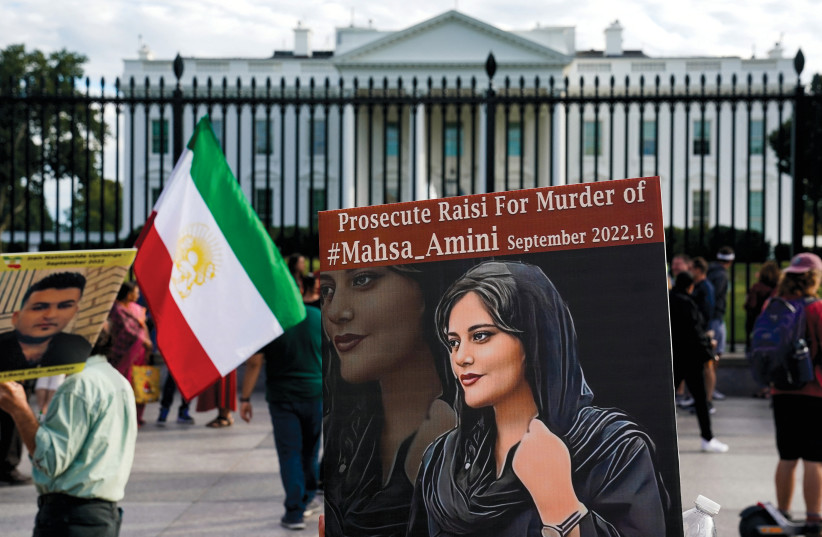Women have suffered the erosion of their rights in Middle Eastern and nearby countries in recent years, particularly in Iran and nearby Afghanistan. International Women’s Day on Wednesday brought an increased focus on women’s rights in the region. However, for many women the right to even protest or mark the day was curtailed.
In Turkey, protesters were detained in Istanbul for protesting. According to the BBC, “thousands of Turkish women have defied a ban on protests on International Women’s Day and rallied in the city of Istanbul for what they called a ‘feminist night march.’”
The report added that “Police prevented them from reaching Taksim Square in the city center but allowed them to carry on with their march for a while, although later they used tear gas to disperse them. Several people were detained by police at the march.” According to the opposition party, more than 600 women have been killed in Turkey by men since 2021.
In Iran, women’s rights have been especially in the spotlight for the last six months after protests erupted last year when the regime killed Mahsa Amini for not wearing a head scarf properly according to Iran’s modesty laws.
Iranian regime
The Iranian regime has slowly increased its crackdown. In recent weeks, reports have been circulating about poisonings occurring in girls’ schools. It remains unclear who is behind them. The Islamic Revolutionary Guards Corps has claimed the poisonings are either a foreign plot or a form of “mass hysteria.”

In another report, Iraqi activists discussed women’s rights in the context of the twenty-year anniversary of the 2003 US invasion. One report said that speakers who briefed bipartisan members of Congress included Iraqi activists Yanar Mohammed (Organization of Women’s Freedom in Iraq – OWFI), Nadje Al-Ali (Brown University), Noor Ghazi (University of North Carolina) and Yasmin Chilmeran (International Organization for Migration – IOM).
Another report about the meeting noted that the activists described “the ongoing suffering of women in Iraq and outlined a policy blueprint for supporting Iraqi-led efforts to promote women, peace and security. The briefing drew on insights from a new report, ‘Women and the Iraq War, 20 Years Later: The Consequences of War, Sanctions, and Occupation for Women and the Continuing Struggle for Women’s Rights,’ from Fourth Freedom Forum and the University of Notre Dame Keough School of Global Affairs.”
OWFI President Yanar Mohammed said: “The international community can be more vocal toward what the Iraqi government is doing to or allowing to be done to Iraqi women. Change the laws that are against women; allow more international funding for us. The Iraqi oil money – part of it should go to women.”
Yasmin Chilmeran, co-chair of OIM’s Technical Working Group for the Return of Iraqi Nationals from North East Syria, highlighted how there is a “new generation of activists and voices that really wants to be heard.”
The report from the activists noted that donor countries can back Iraqi women’s groups through several policies such as “urging the Iraqi government to support shelters and other legal protections against gender-based violence; working with victims and legal practitioners to change laws and practices that legalize violence against women, such as rape marriages where a perpetrator marries his victim and ‘honor killings’; [and] supporting increased investments in education and health programs that benefit women, including access to credit and financial incentives, etc.”
Women’s rights in Turkey, Iran and Afghanistan are only the tip of the iceberg in terms of violations in the region and the erosion of women’s rights in many places. There are some exceptions to this trend: In the UAE, the media provided inspirational stories for International Women’s Day.
However, the overall trend in the region is not positive. Most countries either do not put a priority on women’s rights or are actively involved in eroding the rights that women may have gained over the last century. Afghanistan is the worst example, where women are systematically being excluded from public life and education.
